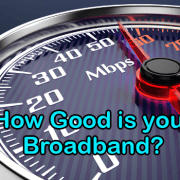Another survey from Which? This time 4G coverage
As more and more people access the internet and their emails via their mobile phones, coverage and download speeds can be of crucial importance to businesses if they want to be competitive.
It is particularly important for businesses in the service sector, such as restaurants and other venues, that often rely on a percentage of their “impulse buy” custom from people either visiting an area or out and about.
Some timely new research has investigated 4G coverage in the UK and found that varies significantly in different parts of the country and that its overall availability at 65% puts it in 54th place globally, behind Estonia and Peru.
The research, carried out by the consumer group Which? and analyst OpenSignal measured data from mobile phones across 20 cities in the UK.
The top five for 4G availability were Middlesbrough with 82.7% availability, Sheffield (79.3%), Sunderland (79%), Leicester (78.6%) and Leeds (78.2%).
The bottom five were Bournemouth, Southampton/Portsmouth, Cardiff, Nottingham and London.
The study, which analysed more than 500m data readings from mobile phones taken from more than 30,000 users between December 1, 2016 and February 28, 2017 via an app, also looked at download speeds with Stoke-in Trent the fastest and Brighton the slowest.
According to Ofcom, the communications technology watchdog, its rules mean that “virtually all UK premises must receive a 4G signal by the end of this year.”
It remains to be seen whether this will happen.
You can find out about 2G, 3G and 4G coverage in your area with this Which? map here.


